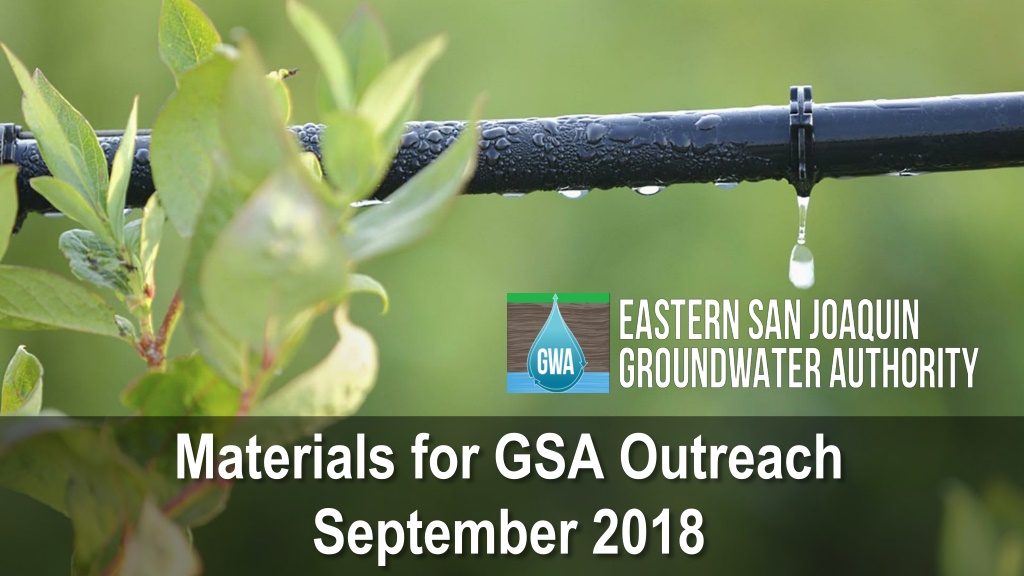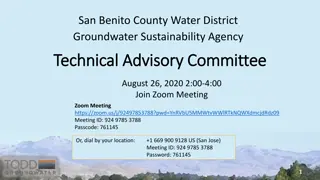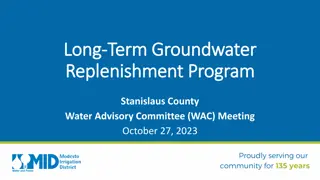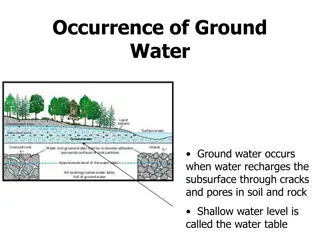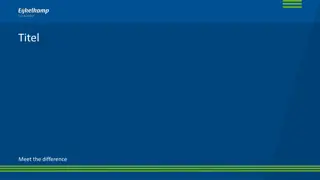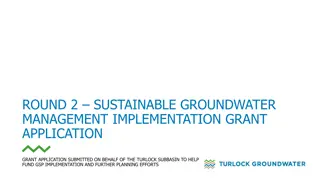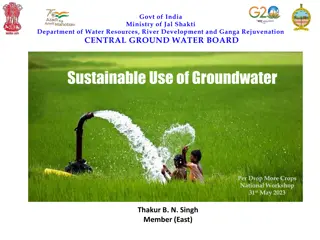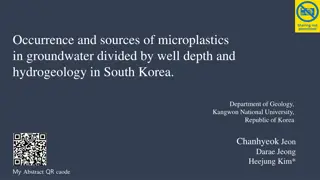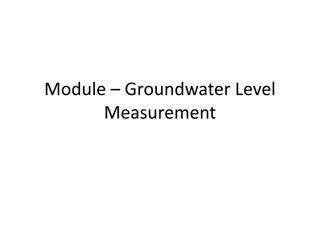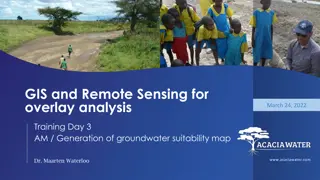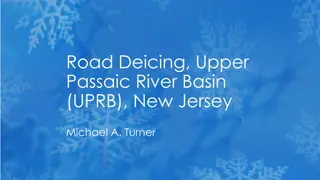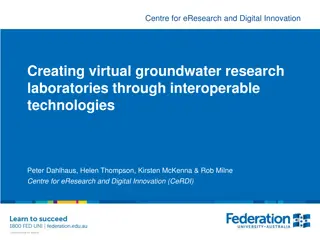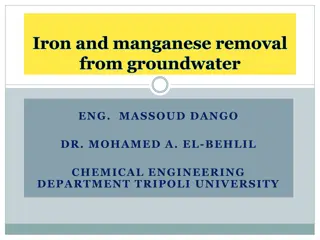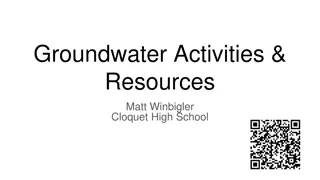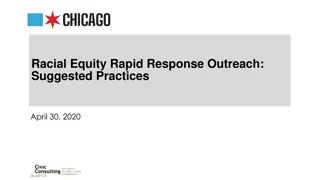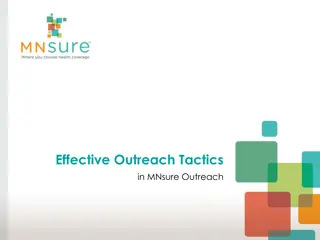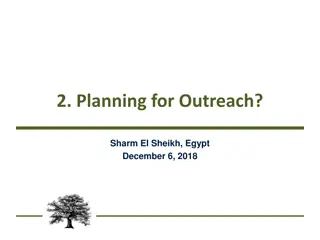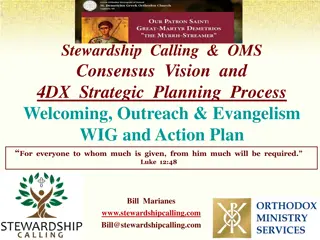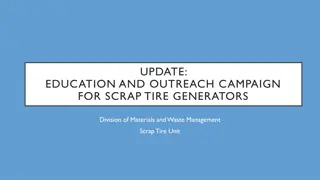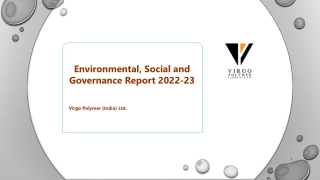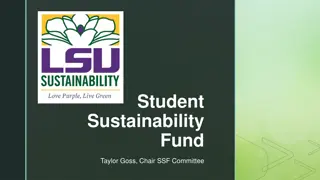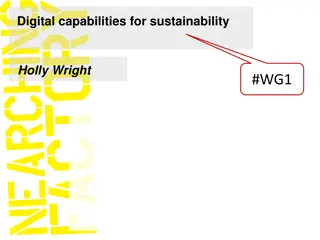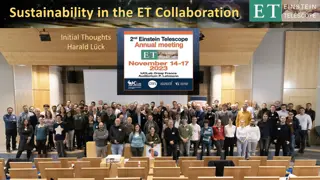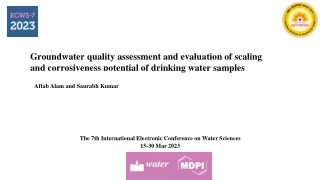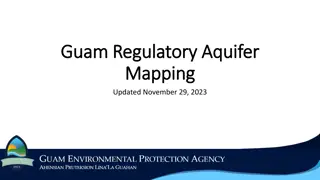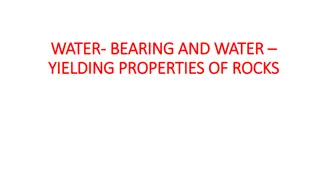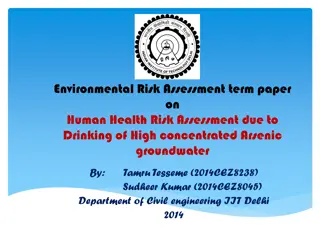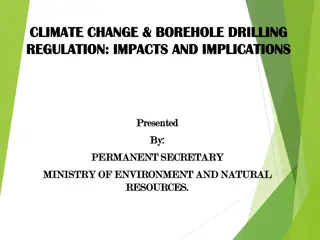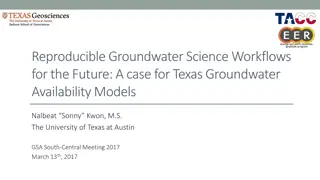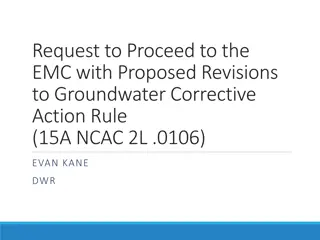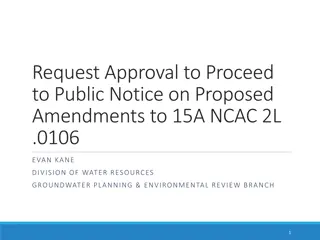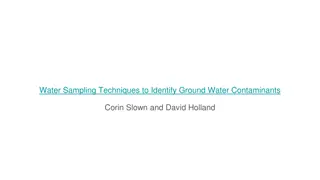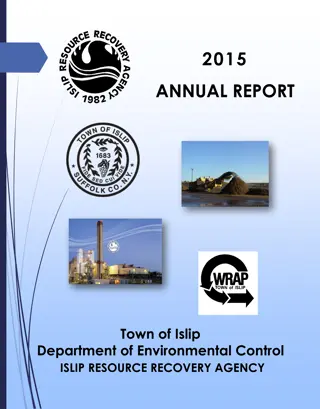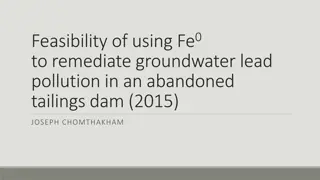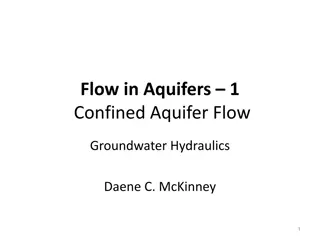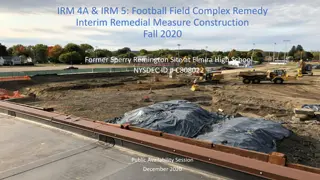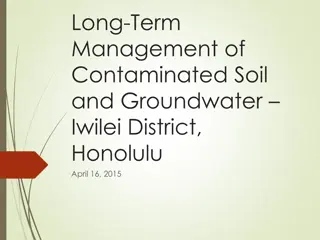Groundwater Sustainability Outreach Update
The update includes details on GSA outreach efforts, project schedules, open house events, and workgroup meetings. Materials, mailers, bilingual flyers, and press releases were distributed to NGOs, businesses, and water suppliers. Social media and local GSA communication strategies were also employed. The first public open house was held on August 29, featuring various stations for engagement. Updates on workgroup meetings and public attendance were highlighted, emphasizing continuous community involvement in sustainable groundwater management.
Download Presentation

Please find below an Image/Link to download the presentation.
The content on the website is provided AS IS for your information and personal use only. It may not be sold, licensed, or shared on other websites without obtaining consent from the author. Download presentation by click this link. If you encounter any issues during the download, it is possible that the publisher has removed the file from their server.
E N D
Presentation Transcript
Materials for GSA Outreach September 2018
GSP Topics & Project Schedule GSP Topics GSP Finalization Elements 2
Outreach & Groundwater Sustainability Workgroup Update
Workgroup Materials are Posted Regularly 5
First Open House The first Public Open House was held on August 29 The event followed an open house format with one outreach station for each GSA SGMA background was provided through four stations (Background, Process, Get Involved, Technology) Future public meetings are anticipated at an approximately quarterly basis 6
Open House Outreach Efforts Mailer: We distributed mailers to 400+ NGOs, local businesses & water suppliers Bilingual Flyer: A bilingual flyer was emailed to 200+ NGOs, local businesses, and water suppliers. It was also provided to members of the ESJ Board, Advisory Committee, & Groundwater Sustainability Workgroup Press Release: A press release was distributed to local media outlets & organizations with newsletters 7
Watch for Information from Your Local GSA Flyers: Available in English and Spanish Press Releases: For organizations to include in their newsletters/blogs Social Media Posts: Facebook posts and Tweets by GSA member agencies 8
Were On Facebook! @ESJGroundwaterAuthority Did you know the Eastern San Joaquin Groundwater Authority is creating a sustainable groundwater management plan? Our first open house was held on August 29 from 6:30 8 p.m. at the Robert J. Cabral Agricultural Center. For more information visit: www.esjgroundwater.org. 9
Groundwater Sustainability Workgroup Update 9 Workgroup members and 4 members of the public attended the last meeting on August 15th Members are currently reviewing draft August meeting notes and providing comment The next Workgroup meeting will be held on September 11thfrom 4 5:30 p.m. at the Robert Cabral Ag Center, Calaveras Room 10
Groundwater Sustainability Workgroup: Twelve Key Values Minimize and mitigate adverse impacts to the environment including climate change Exhibit multiple benefits to local land owners and other participating agencies Be implemented in an equitable manner Be affordable and accessible Maintain overlying landowner and Local Agency control of the Subbasin Minimize adverse impacts to entities within the Subbasin Maintain or enhance the local economy Protect the rights of overlying land owners Increase amount of water put to beneficial use within the Subbasin Protect groundwater and surface water quality Restore and maintain groundwater resources Provide more reliable water supplies 11
Reminder How do the Pieces Fit Together? Identify Appropriate Monitoring / Measurement Locations throughout Subbasin Document Potential Undesirable Results for Each Sustainability Indicator Develop Measurable Objectives above Each Minimum Threshold Identify Spatially Representative Minimum Thresholds 13
Reminder: Six Sustainability Indicators to be Addressed Chronic lowering of groundwater levels indicating a significant and unreasonable depletion of supply Significant and unreasonable degraded water quality Significant and unreasonable reduction of groundwater storage Depletions of interconnected surface water that have significant and unreasonable adverse impacts on beneficial uses of the surface water Significant and unreasonable seawater intrusion Significant and unreasonable land subsidence 14
Where are we now? Identify Appropriate Monitoring / Measurement Locations throughout Subbasin Document Potential Undesirable Results for Each Sustainability Indicator Develop Measurable Objectives above Each Minimum Threshold Identify Spatially Representative Minimum Thresholds We are here 15
Major Plan Focus Areas Working through Advisory Committee and Groundwater Sustainability Workgroup to: 1. Develop concept of what sustainability means for the Subbasin and identify high priority values around groundwater 2. Identify undesirable results occurring now or in the past 3. Develop minimum thresholds for each sustainability indicator 16
Threshold Development Mapped lowest elevation of 1992 or 2015 Met with GSAs to confirm understanding Developed alternative methodology with high/stable groundwater elevations (variance of last 5 years of data applied to lowest level recorded as a buffer) Identified monitoring locations for groundwater thresholds 17
Preliminary Monitoring Well Selection Well Characteristics Spatial representation (>1 well per GSA) Wells selected are CASGEM where available Wells have representative behavior of area Good historical record Well construction information 18
HCM Development Basic Process The process of creating cross sections and other HCM figures comprises 3 basic steps. Obtaining well logs from various sources. Comparing spatial distribution of wells for usefulness in HCM. Wells and Logs Documenting well log data, such as construction and lithological information. Organizing data for use in GIS software and DMS. Examining Data Producing cross sections and 3D figures of subsurface geology and groundwater conditions via GIS software. Figure Generation 20
Example HCM Cross-Section Cross sections show principal aquifers, aquitards, and stratigraphy C C 21
5 Preliminary HCM Cross-Sections Will be Developed for the Subbasin Cross-section lines were chosen based on the following characteristics: Spans the entire subbasin Proximity to an adequate number of wells with geologic and construction information Covers areas where current groundwater levels are lower than drought levels 22
GSP Includes a Plan to Fill Data Gaps X: potential future monitoring well location 23
Technical Support Services Funding Update Draft application was submitted and approved! Working on monitoring well work order (next step) 25
Next Up Projected Water Budget Sustainable Yield Projects & Management Actions 26
